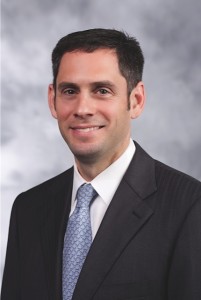Reggie White, “The Minister of Defense”, died at age 43; Gaines Adams died at 26. These two elite NFL athletes allegedly suffered from undiagnosed and untreated obstructive sleep apnea (OSA), which may have contributed to their early deaths. Many highly trained and well conditioned athletes, often with low body fat percentages but an elevated body mass index (BMI= a relationship of height and weight), have undiagnosed OSA which elevates their risk of cardiovascular events, such as heart attacks. Typically, the type of sleep problem seen in football players with thick necks and elevated weight is due to airway obstruction while sleeping at night.
What is OSA? OSA can be simple snoring, restricted airflow, or even complete obstruction of breathing with decreased oxygen delivered to the body organs like the heart and kidneys. Risks factors for sleep apnea include: 1) Nightly Snoring, 2) Neck size greater than 17 inches, 3) Obesity – BMI greater than 30, 4) Risk factors – high blood pressure, diabetes, 5) Decreased Energy or increased sleepiness (SNORE). Sleep apnea can cause high blood pressure, abnormal heart rhythms, fatigue, irritability, and poor concentration and attention that may affect school performance.
In fact, a 2003 study of NFL athletes revealed that 14% of players tested positive for sleep apnea. Again in 2010, 137 active professional NFL players were studied for risk factors of heart disease, including a home test for sleep apnea. At least 19% of those studied had mild sleep apnea, and several had more severe disease. It is generally accepted that 2-4 % of the U.S. population has obstructive sleep apnea, and up to 90% of people with sleep apnea are currently undiagnosed. The test for sleep apnea (a sleep study) is covered by health insurance, non-invasive, and can be performed in an overnight attended lab setting, or even with a home monitor. Once diagnosed, there are many different treatment options including oral appliances, weight loss, airway surgery, and continuous positive airway pressure devices (CPAP). Once sleep apnea is treated, patients often have more energy, and decreased risk of complications including hypertension.
Coaches and parents alike can screen for possible sleep apnea with the SNORE questions, as stated above, and follow up with a board certified sleep physician to see if a sleep study is appropriate and review treatment options. Early treatment can prevent complications and keep our student athletes and professional players on the field for a lifetime.

To schedule an appointment with one of our board certified sleep physicians, please call Charlotte Eye Ear Nose & Throat Associates, P.A. at 704-295-3000 or visit www.goodsenses.com for more information on our services.
Joshua Levine, MD
Adult and Pediatric Otolaryngology
Sleep Medicine




1 comment
Thanks for this post. Now, do you have any suggestions for convincing a loved one to be tested without causing anxiety?